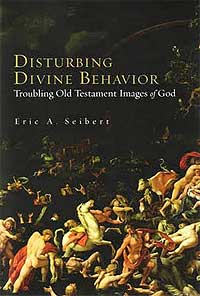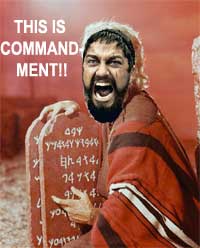Claude Mariottini caught me in an inadvertent historical “error” (or is it an error? it is accurate according to the MT) when he noticed my reference to King Saul’s “two year” reign in my post, “Saul: The King Who Should Have Never Been.” I hadn’t meant to make a point out of how long his reign actually was historically; while some scholars would agree with the MT and maintain that Saul’s reign was only two years, most would suggest there is a textual error in the MT. My concern in the post, however, was not how long the historical Saul may or may not have reigned, but rather, I was making a point about the anti-Saul polemic in Samuel and especially in Chronicles.
That being said, I find Saul’s problematic regnal formula in 1Samuel 13:1 intriguing. A quick look at the Hebrew text of this verse will quickly highlight the problems with this verse:
בֶּן־שָׁנָה שָׁאוּל בְּמָלְכוֹ וּשְׁתֵּי שָׁנִים מָלַךְ עַל־יִשְׂרָאֵל
Literally translated the text would read: “Saul was son of __ years when he began to reign, and he reigned two years over Israel.” There are two issues with this verse.
- The most obvious problem with this verse is that there is no number associated with Saul’s age when he took the throne. The Hebrew convention to say someone is twenty-five years, for example, is to say literally, “he was son of twenty and five years.” This is more than likely a textual problem.
- The second issue is both grammatical and historical in nature. Historically, most scholars consider two years to be too short for Saul’s reign if you need to fit all the events narrated in 1Samuel. Grammatically, the syntax of the regnal formula is usually an cardinal in absolute state followed by the absolute noun “years”; in this verse you have a cardinal in construct form followed by an absolute noun (e.g., in 2Samuel 2:10 Ishbaal’s two-year reign is found with the expected form: וּשְׁתַּיִם שָׁנִים מָלָךְ). This departure from the standard formula may suggest a textual issue where some numbers dropped out.
When we look to other textual witnesses, there is little help. Codex Vaticanus omits the verse, while some of the Lucianic Greek manuscripts put Saul’s age at thirty, but they reproduce the two year duration of his reign. The Aramaic Targums translate the verse creatively as “Saul was like a one year old with no sins when he became king; then he reigned two years over Israel.” Josephus puts Saul reign as twenty years long in Ant. 10.143, but as forty years in Ant. 6.378 (The latter agrees with Acts 13:21). And modern scholars have suggested a bunch of different numbers (For a good discussion trying to figure out how long Saul’s reign actually was, I encourage you to check out Claude’s post, Rereading 1 Samuel 13:1; Chris Heard over at Higgaion also has a related post dealing with the length of Saul’s reign on the Accordance timeline).
All of the apparent textual issues aside, I still wonder if the MT text may be purposeful — it would certainly fit in with the anti-Saul polemic found in the Deuteronomistic History, Chronicles, and other parts of the Hebrew Bible (e.g., Esther). I recall a course I was in at the University of Toronto with Dr. Stanley D. Walters on 1 and 2 Samuel and I believe he suggested that the reading of the MT was intentional. This is also the perspective of Hertzberg in his commentary on Samuel in the OTL series. He suggests in regards to the awkward syntax of the MT’s two year reign that
the number is given because it was the later view that Saul was actually ‘king’ for only quite a short time (cf. also on 15.1). In fact, the number 40, which is geven both in Josephus and in Acts 13.21 as the length of Saul’s reign, may originally have stood here; as has been said, it would have been replaced by the figure two on dogmatic-historical grounds” (I & II Samuel: A Commentary, p. 103; emphasis mine).
Thus, while historically Saul’s reign was perhaps over a decade or two, in reality, from a theological perspective, his reign was only two years since Yahweh removed the crown from him and “turned the kingdom over to David son of Jesse” (1Chron 10:14). And the MT reflects precisely this theological reading.
 Disturbing Divine Behavior:
Disturbing Divine Behavior:
 20th Century Fox
20th Century Fox